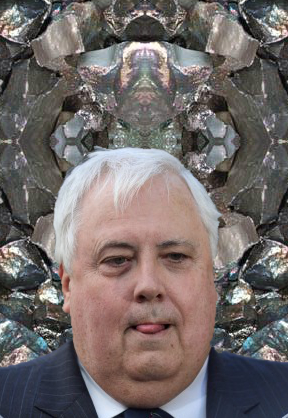Palmer's plays keep hundreds at risk
 The Queensland Government says it will not act as a bank guarantor for Clive Palmer’s troubled Townsville nickel refinery, and the French territory of New Caledonia is getting skittish too.
The Queensland Government says it will not act as a bank guarantor for Clive Palmer’s troubled Townsville nickel refinery, and the French territory of New Caledonia is getting skittish too.
Mr Palmer, federal MP and mining magnate, wants Queensland’s Palaszczuk Government to back a $35 million loan to keep his Queensland Nickel refinery near Townsville afloat.
Mr Palmer has met with Queensland Treasurer Curtis Pitt to request help keeping the Yabulu smelter open, and keeping hundreds of locals employed.
“It is the Queensland Government's view that providing direct assistance including via bank guarantee, presents an undue risk to the state and creates a precedent,” Mr Pitt said this week.
“It is the Government's firm view that Queensland Nickel and its shareholders should take direct responsibility for resolving Queensland Nickel's current financial issues, ensuring the future of the Yabulu refinery without further delay.
“Our thoughts are with the 800 workers who through no fault of their own have no guarantee about their job security weeks out from Christmas.”
Meanwhile, nickel mining companies in New Caledonia are rushing to develop exports to China, fearing that Mr Palmer’s Townsville smelter – their main buyer - could shut.
New Caledonia, a set of islands about 1500km northeast of Brisbane, accounts for a quarter of the world’s reserves of nickel.
It currently exports about 4.5 million tonnes of nickel per year, largely to Japan, South Korea and Australia for use in steel production.
These markets account for the most common two types of nickel, but the high-value laterite type from the main island of Grande Terre is primarily exported to Queensland Nickel.
Mr Palmer’s Townsville operation was lined up for $152.8 million worth of New Caledonian ore this financial year, but its current troubles have put its future into doubt.
Court affidavits reported on by News Corp allegedly show Mr Palmer met officials from the New Caledonian government, including President Philippe Germain, in recent weeks.
New Caledonia is officially a French sovereign territory, but its elected territorial government has autonomy and authority over most issues, including exports.
There are reports of mysterious “political” obstacles erected by the territorial government of New Caledonia that are preventing mining companies from moving away from reliance on Mr Palmer.
The government has not been providing export permits, which mean that Mr Palmer’s refinery will remain the dominant buyer of laterite nickel ore.
“To be frank, we find it a bit difficult to understand,” Xavier Gravelat, general manager of Societe Miniere Georges Montagnat and president of the association representing New Caledonia’s five mining companies, told News Corp.
“It’s really a political decision, because there is no economic justification for that.”
“The government didn’t want to allow [an export deal with a Chinese company], they wanted us to just keep trading with Queensland Nickel,” said Didier Grosgurin, the head of another mining company, MKM.







 Print
Print